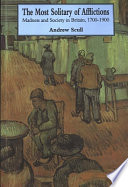 | John C. G. Röhl, Nicolaus Sombart - 2005 - عدد الصفحات: 340
...German Weltpolitik; reflexions on Wilhelm II's place in the making of German foreign policy PAUL KENNEDY Men make their own history, but they do not make it...chosen by themselves, but under circumstances directly encountered, given and transmitted from the past.1 One of the key debates which has exercised historians... | |
 | Kojin Karatani - 2005 - عدد الصفحات: 382
...the first French Revolution as an a priori form, so to speak, that constituted the process of events. Men make their own history, but they do not make it...chosen by themselves, but under circumstances directly encountered, given and transmitted from the past. The tradition of all the dead generations weighs... | |
 | Wendy Bottero - 2005 - عدد الصفحات: 306
...collapse back on one side of the division that they make. Marx insists on both agency and constraint: 'Men make their own history, but they do not make...chosen by themselves, but under circumstances directly encountered, given and transmitted from the past' (1852/2000: 329). Marx sets out reasons why people... | |
 | Andrew Scull - 1993 - عدد الصفحات: 470
...historian ought at least to prevent it smothering us beneath its dead weight. The Rise of the Asylum Men make their own history, but they do not make it...chosen by themselves, but under circumstances directly encountered, given and transmitted from the past. The tradition of all the dead generations weighs... | |
 | Richard J. Samuels - 2003 - عدد الصفحات: 492
...leadership, Marx proclaimed his well-known dictum about the limits to autonomous political action: Men make their own history, but they do not make it...chosen by themselves, but under circumstances directly encountered, given, and transmitted from the past. The tradition of all the dead generations weighs... | |
 | Wendy Bottero - 2005 - عدد الصفحات: 300
...collapse back on one side of the division that they make. Marx insists on both agency and constraint: 'Men make their own history, but they do not make...chosen by themselves, but under circumstances directly encountered, given and transmitted from the past' (1852/2000: 329). Marx sets out reasons why people... | |
 | Paulos Milkias, Getachew Metaferia - 2005 - عدد الصفحات: 338
...blanche, upon which he may scribble whatever he pleases."531 From a radically different angle, Marx noted, "Men make their own history, but they do not make...chosen by themselves, but under circumstances directly encountered, given and transmitted from the past."532 Both argued, from different perspectives, to... | |
 | Bruno Gullì - 2005 - عدد الصفحات: 236
...everything is manmade. Certainly, men and women make their world; they — as Marx says after Vico — "make their own history; but they do not make it just as...chosen by themselves, but under circumstances directly encountered, given and transmitted from the past" (Marx 1994: 188). Perhaps less stressed, this truth... | |
 | Brian Belton - 2005 - عدد الصفحات: 216
...to social conditions that are capitalist in character. Men do not make their own history . . . not just as they please; they do not make it under circumstances...directly found, given, and transmitted from the past. (Marx 1935, 13) The next section will expand on this perspective via the thought of Michael Foucault.... | |
 | Brian Belton - 2005 - عدد الصفحات: 216
...to social conditions that are capitalist in character. Men do not make their own history . . . not just as they please; they do not make it under circumstances...directly found, given, and transmitted from the past. (Marx 1935, 13) The next section will expand on this perspective via the thought of Michael Foucault.... | |
| |